Image
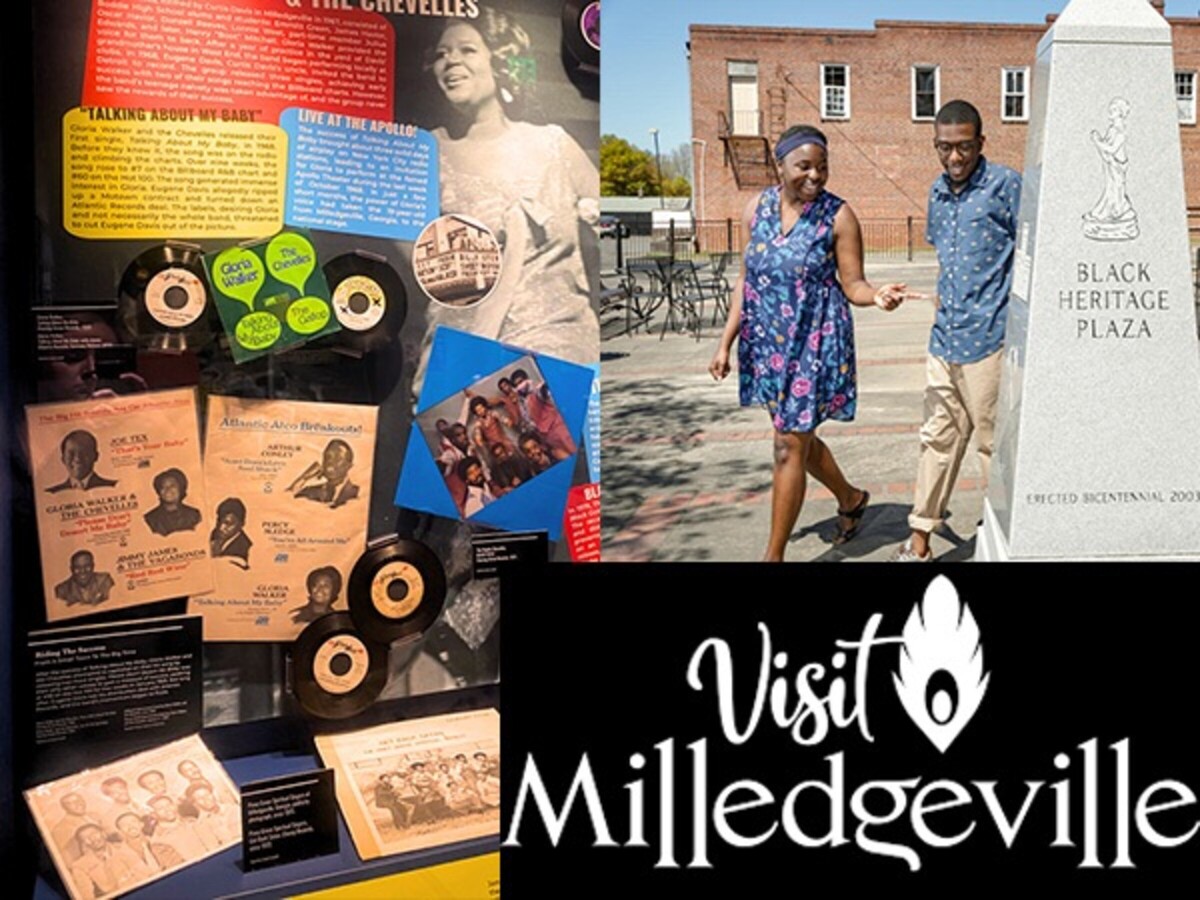

The crew over at Visit Milledgeville, which is the local conventions & visitors bureau, always does a top-notch job of promoting Milledgeville, and now they're back with their "Six Sites Celebrating African-American Contributions" feature. For features like these and much more, CLICK HERE.
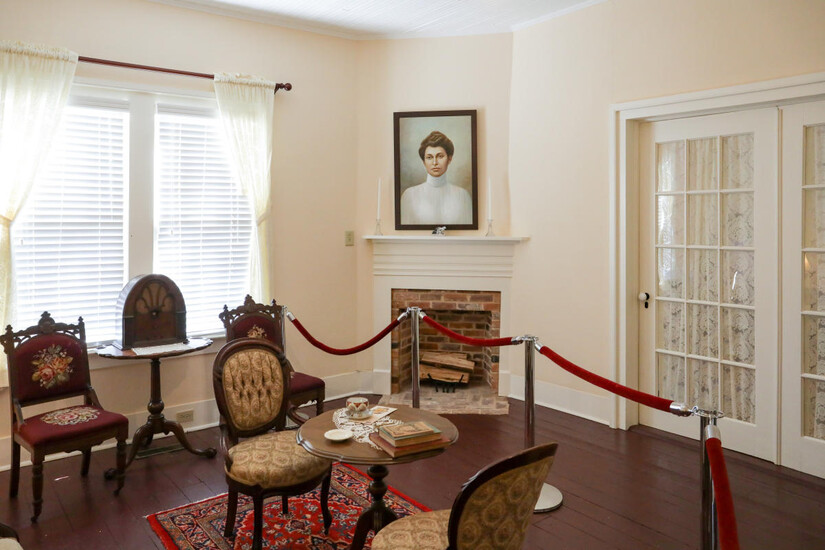
• THE SALLIE ELLIS DAVIS HOUSE
"Visitors are invited to learn about the life and legacy of one of Baldwin County’s most passionate and influential educators at theSallie Ellis Davis House. Born in 1877 to a prominent white landowning merchant and an African-American woman, she persevered in the areas of education and community acting as a role model for all women and people of color. Before the turn of the century, her determination earned her a Master’s degree in education from Atlanta University. Davis’ commitment to her community and the children of Baldwin County led her home to Milledgeville where she served as a school teacher and later led the way as the first African-American principal of Baldwin County at Eddy High School. Davis believed that through a combination of hard work and education one could accomplish anything. The Sallie Ellis Davis House is open for tours by appointment, please call the office at 478-445-5889."
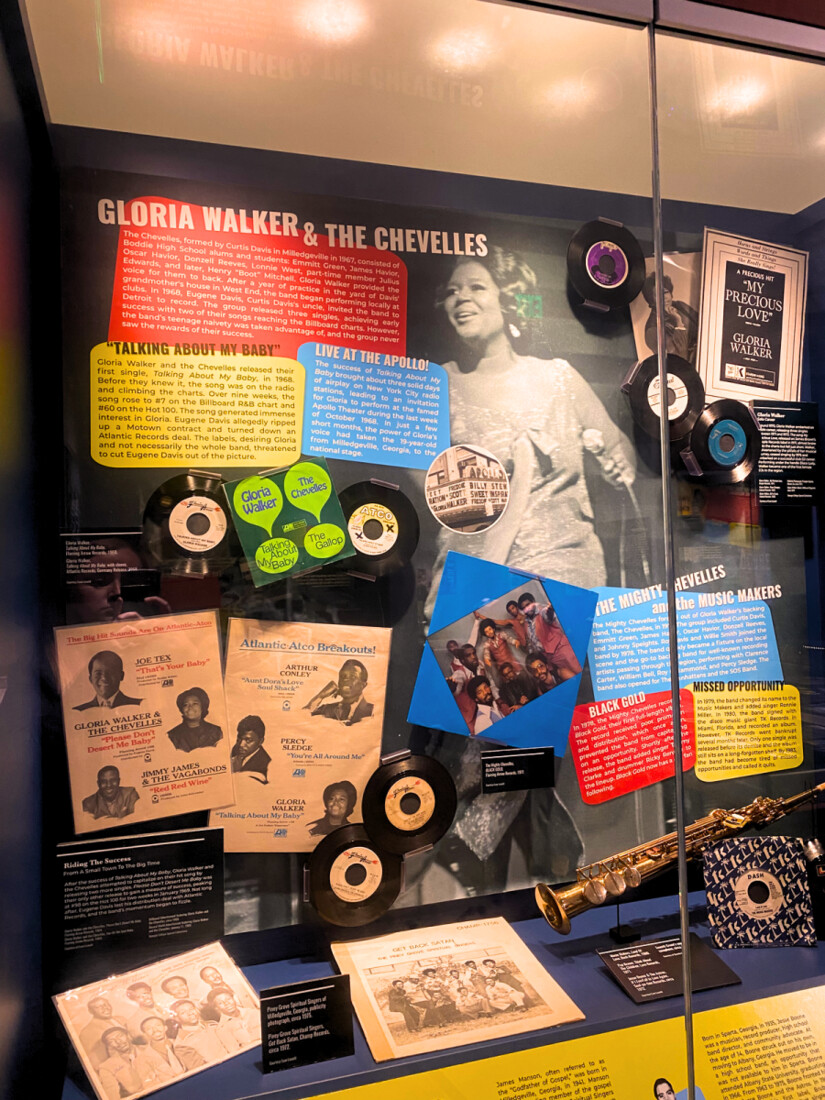
• HERITAGE HALL
"Ensuring that the lives and experiences of our diverse community receives historical recognition and representation, Heritage Hall is an enlightening visit. Housed within the Ina Dillard Russell Library on the Georgia College campus, Heritage Hall is home to special collections and a treasury for various manuscripts, rare books and photographs documenting the history and culture of Milledgeville-Baldwin County and its contiguous counties.
Current exhibits featuring stories of African American heritage in Milledgeville include displays for Floyd Griffin Jr., Alice Walker, and The Soul of Georgia highlighting Milledgeville’s music scene. Born in Milledgeville in 1944, Floyd L Griffin, Jr serves as a retired United States Army Colonel, former Georgia State Senator, and the first African-American Mayor of Milledgeville. Throughout Griffin’s life, he has always been dedicated to public service. American writer Alice Walker was born in the neighboring town of Eatonton and lived in Milledgeville for a time with her family. Walker, whose novels, short stories, and poems are noted for their honest and candid treatment of African American culture in the American south, is most famous for her Pulitzer Prize-winning novel The Color Purple. Middle Georgia is arguably the cradle of soul music, and Milledgeville is not an exception. Early blues artists like Peg Leg Howell and Blind Willie McTell would set the standard for rhythm and blues, playing traditional country styles in a new way. Black music took over the area like wildfire with the growth of soul music, Gloria Walker and the Chevelles, all Milledgeville natives, would work for over a year perfecting their sounds before releasing “Talking About My Baby” a Billboard hit.
To learn more about Milledgeville's diverse community, the gallery is open Monday through Friday 9-5 during fall and spring semesters. However, this may change due to staff availability, so please call the library at (478) 445-4047 to ensure they are open before visiting."
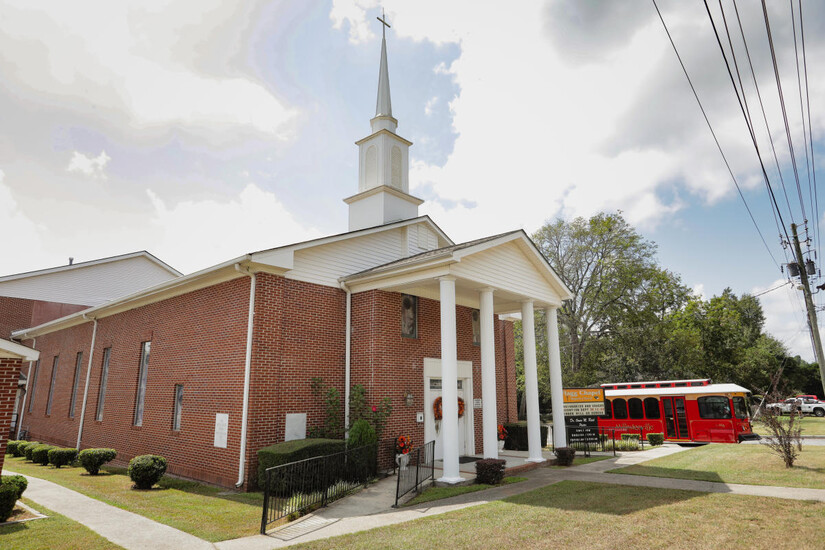
• FLAGG CHAPEL BAPTIST CHURCH
"Renowned as Milledgeville’s first African-American Church, Flagg Chapel Baptist Church was organized in 1830 by a small group of freedmen, under the leadership of the recently freed Wilkes Flagg. Flagg, who was born into enslavement but worked to purchase his own freedom, was motivated to create an environment where African-Americans could freely worship after being denied membership rights to the local First Baptist Church of Milledgeville. Flagg purchased the acre of land where Flagg Chapel now stands and built a home and blacksmith shop. During the church’s early days, Flagg was the congregation’s first Deacon with Sr. Rev. Milus Wilbun having presided as the first pastor. Flagg served as the head pastor of Flagg Chapel Baptist Church from 1845-1878. After the American Civil War, he built Flagg Chapel and used his authority role to advise others on economic and social matters. Under his leadership, the church served as an inspiration and catalyst for other churches to form within the community including Shiloh Baptist Church, El Bethel, Union Baptist, and Trinity CME.
During Flagg’s tenure, the church also served as the first opportunity for African-American education in Baldwin County, opening its doors as the educational home of 350 African-American students while Eddy High School was being built in 1868.
While the original Flagg Chapel burned in 1973, the congregation rebuilt the church in 1976 and it is still open for worship today. To join them in praise and celebration, visit 400 West Franklin Street on Sundays at 11 am."
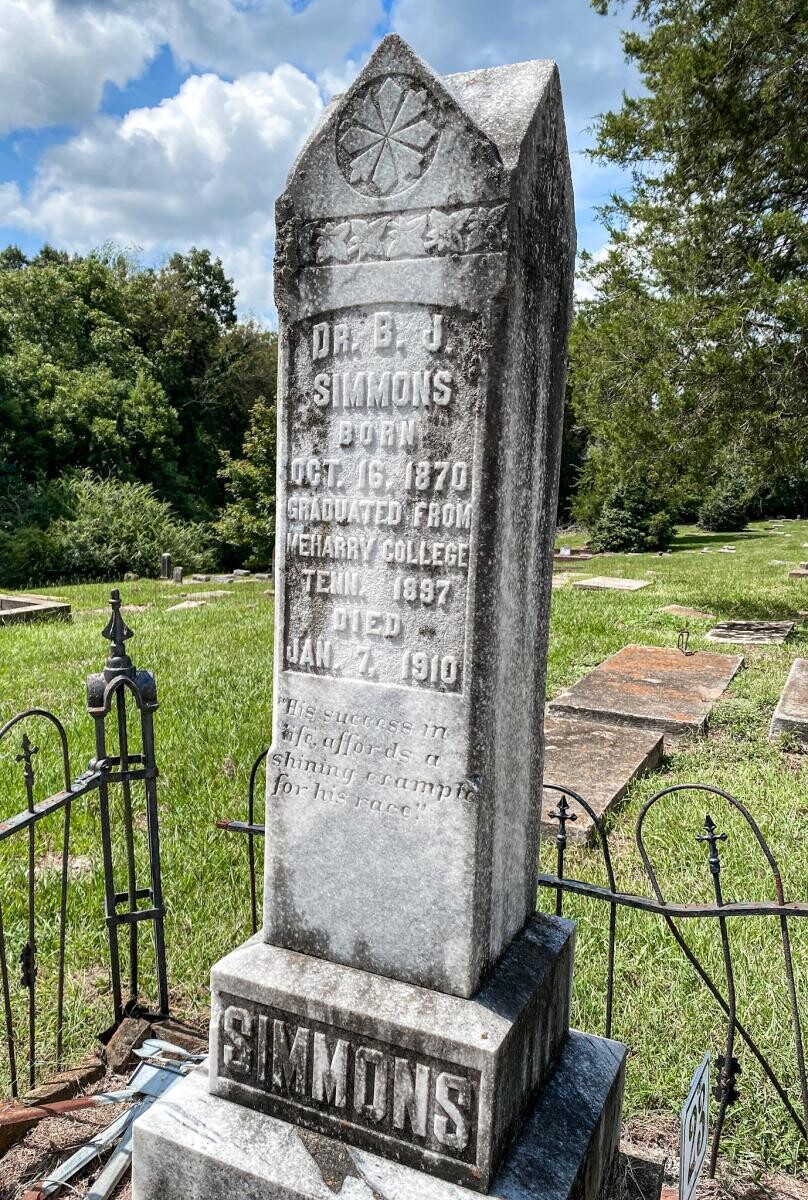
MEMORY HILL CEMETERY
"For a moment of quiet reflection, visitors may explore the burial sites of free and enslaved African-Americans at Memory Hill Cemetery located at 300 West Franklin Street. Established in 1810 by the First United Methodist Church of Milledgeville, the Milledgeville Cemetery was renamed to Memory Hill Cemetery in 1945 and covers a total of 30 acres. The cemetery contains over 7,700 identifiable graves and at least 1,200 unmarked graves. The rear of the cemetery contains numerous unmarked slave graves. Both the left and right rear sections are where slaves and free African-Americans were buried among unmarked stone slabs and uneven land. Out of that section alone, there are almost 500 unmarked graves and almost 550 unknown graves.
Burials of special note include Dr. B. J. Simmons, Milledgeville’s first African-American physician, and three Buffalo Soldiers from the 9th Cavalry in Troop H (Sol Sanford, Robert E. Lee, and James Arthur Gibson)."
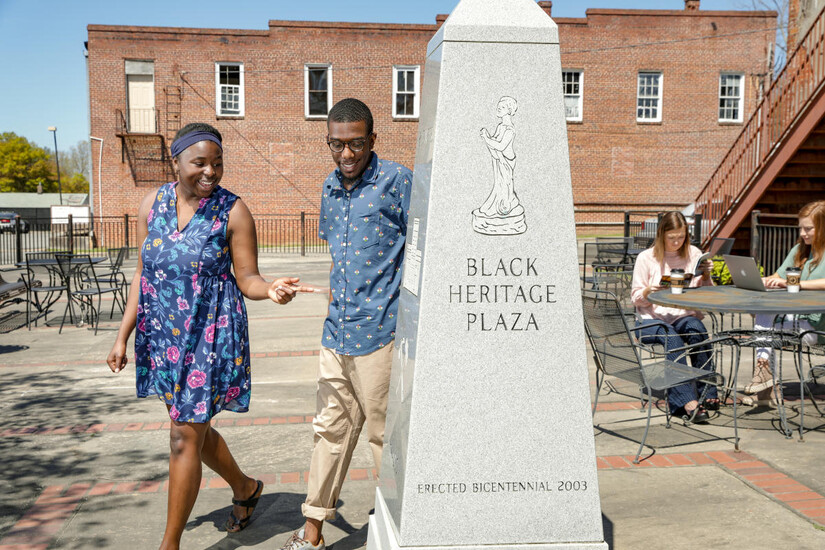
THE BLACK BUSINESS DISTRICT MONUMENT
Floyd L. Griffin, Jr. Black Heritage Plaza to recall the once bustling Black Business District, a historic hub that was home to a collection of Milledgeville's African-American owned businesses until the late 1970's. From barbershops and drug stores to bars and restaurants, The Strip served as the de facto center of black commerce and social life in the city for much of the 20th century. During a segregated America, many shopping districts, like this one, were created to support cafes, restaurants, doctor’s offices, and other businesses for people of color. These African-American community leaders stood firm in their business models to create a safe and secure environment in a time where segregation and mistreatment were tragically common. Milledgeville’s “Strip” was located on McIntosh and Wayne Street, just off the main white shopping area found on Hancock and Wayne Street.
After desegregation in the 1970’s, most districts fizzled away, but the shell of their existence still remains. Today, most of the original “Strip” only exists in the memory of the community; however, Milledgeville’s oldest and most prominent African-American run business, Slater’s Funeral Home, was a vital portion of the original “Strip” and is still in operation today. Opened by Alonzo Slater in 1911, Slater’s Funeral Home was run as a family business and once operated in the space now known as Allen’s Market, a community event space. In 1939, Slater’s Funeral Home moved to the location it still calls home today at 244 N. Wayne Street.
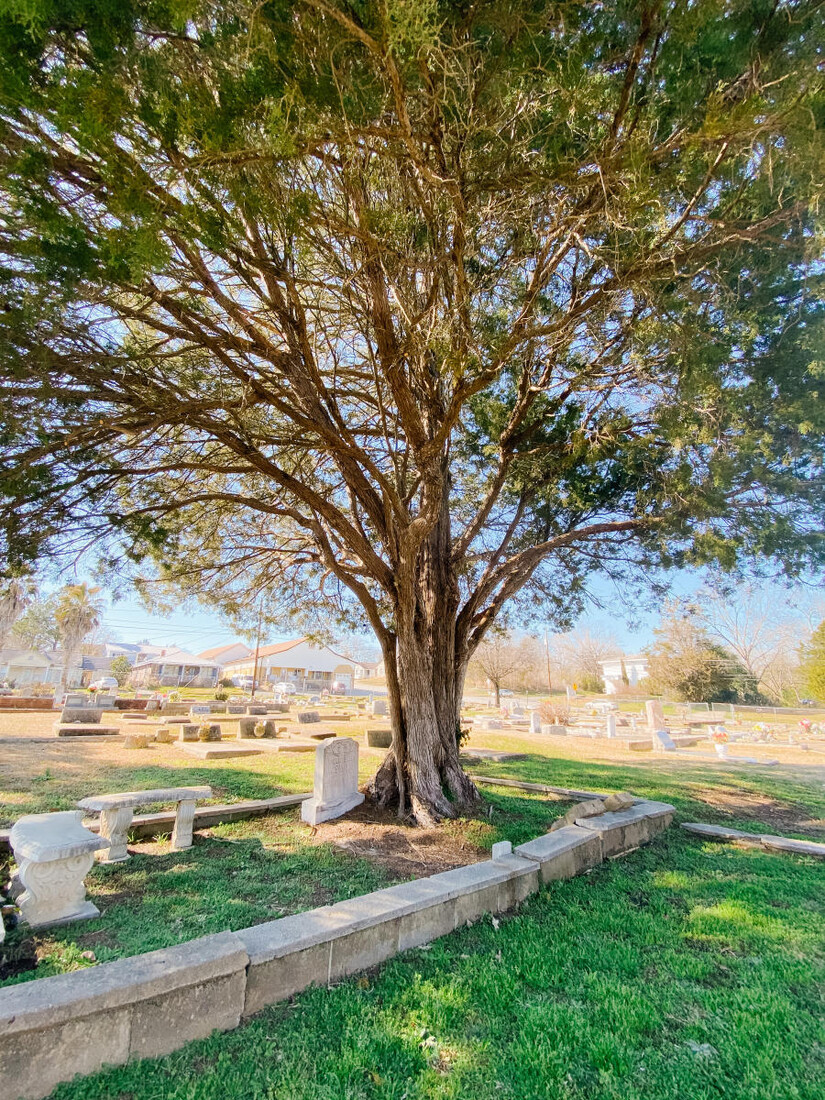
• BONE CEMETERY
Located in a historically black neighborhood just north of downtown Milledgeville, Bone Cemeteryfilled the need for an African American cemetery in the neighborhood. Russell G. Bone, who the Cemetery is named for, began selling lots in the property in the 1940s, and his family continued selling the lots until they were all accounted for. Today, there are approximately 1,750 graves in the cemetery. Notable gravesites include Sallie Ellis Davis, who was a pillar of black education in Milledgeville through the 1900s, as well as many veterans from the area. The City of Milledgeville currently maintains the property.



...CLICK HERE to meet the family!